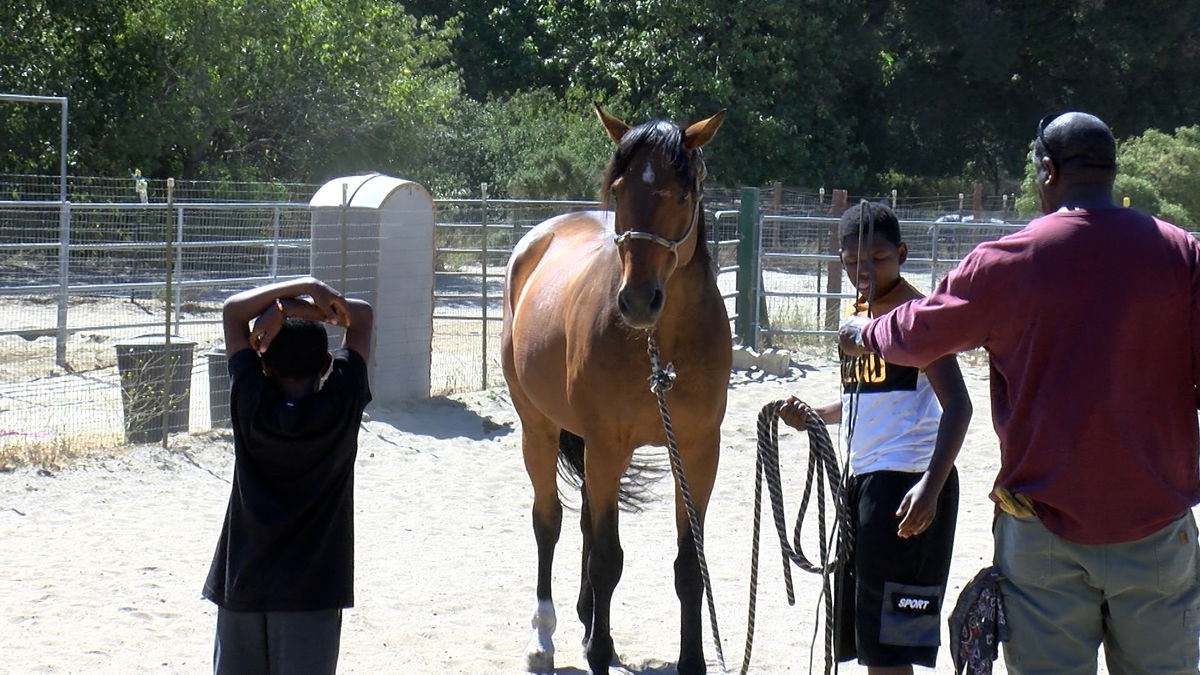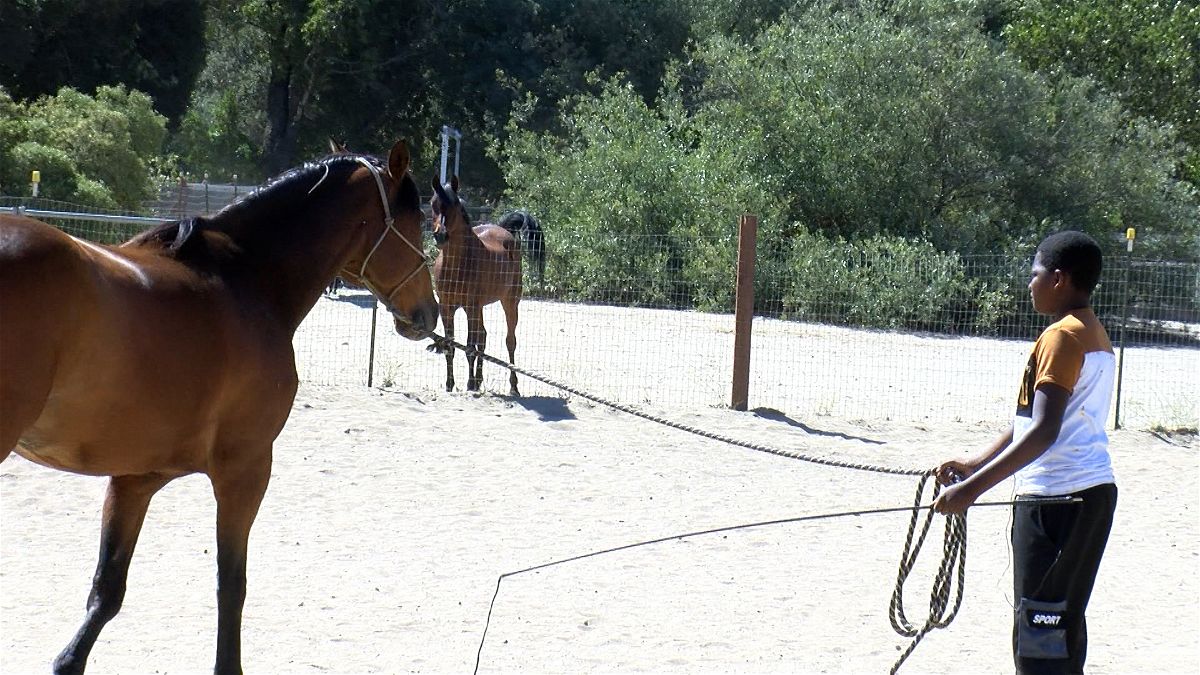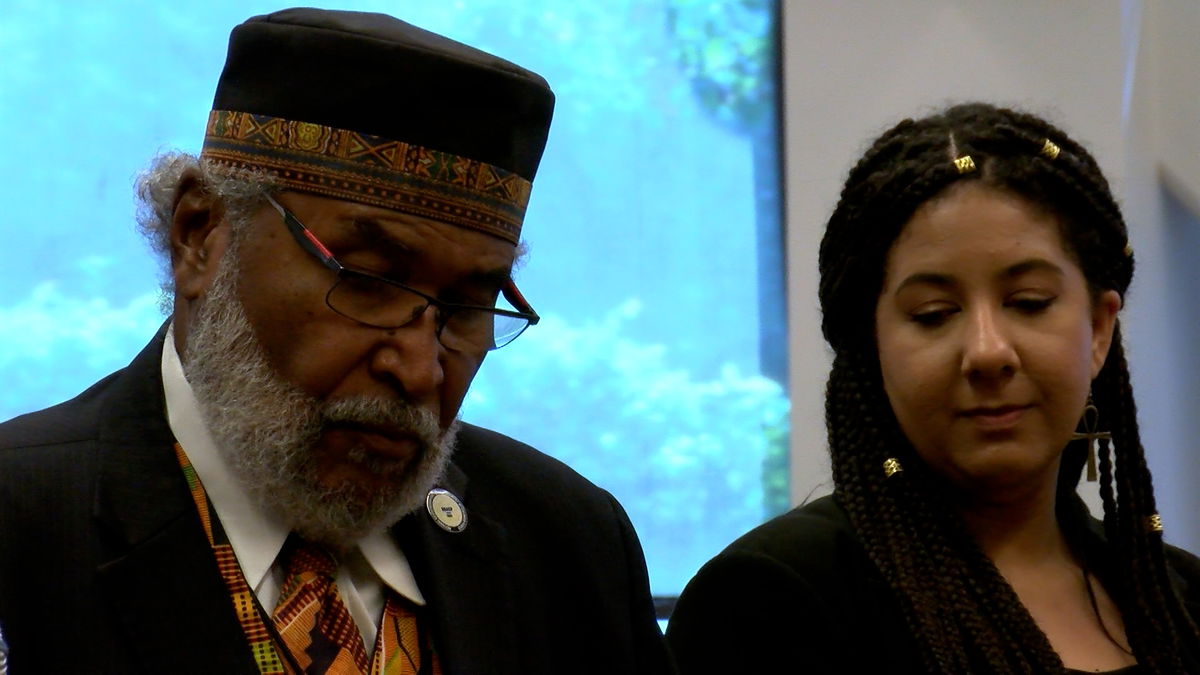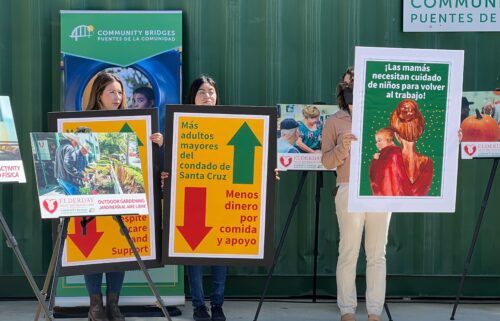SPECIAL REPORT: The importance of minority mental health
SEASIDE, Calif. (KION-TV) Zach, age 12, has been in equine therapy for more than five years.
"I think my grandmother took me to a fair, and there was a pony ride," says Zach Alexander, one of the students in The Village Project's equine therapy program. "She bought me a ticket to ride the pony. And after that, I couldn't stop talking to her about the horses."

Kids like Zach learn to train at The Village Project's equine therapy program. Each child is assigned a mentor who receives individual attention for specific goals.
"You see all the kids developing and learning and dealing with horses, and you know, you see the confidence is overwhelming," said Pete Maiden, one of the mentors for the equine therapy program.
He said that horses naturally teach boys to calm down. One of the group's goals is for boys to apply that same behavior in other parts of their lives, such as at home, school and society.
Equine Therapy is one of several programs offered to children and their families to improve their mental health.

The Village Project is one of the state's leaders in the movement to reduce disparities in California — primarily in mental health. Its founders worked in social services and now use that background to help each person who passes through their agency.
And in June, the Monterey County Board of Supervisors officially recognized July as National Minority Mental Health Awareness Month — just as Bebe Moore Campbell had done, fighting for mental health treatment rights for people of color and was honored in 2008 in Los Angeles.
"We have an even more important role to play here as leaders in Monterey County to reduce these disparities among people of color," adds Mel Mason, former Executive Director of The Village Project of the supervisory board recognition.
Mason has been running the organization for over 20 years, and now he's taking a step back so he can focus more on training therapists — just like he trained Stacy Andrews.
"The agency was really founded to provide mental health therapy," Andrews said, the current executive director of The Village Project. "And over the years, with the leadership of Mel and Regina [Mason], we've continued to create more and more programs based on the needs of community members."

Stacy Andrews worked many years with the Village Project between earning her degree and her Masters in Social Work. Now, she has become the new director of the organization.
Zach, like Stacy, is an example of how The Village Project's work helped them deal with their mental health. Many minorities do not have many opportunities and resources, but the agency is there to change that.
"So many things happened in my life," Zach says. "A lot of hard times. And when I was exposed to horses, all of that went away, and then horses came into my life."



